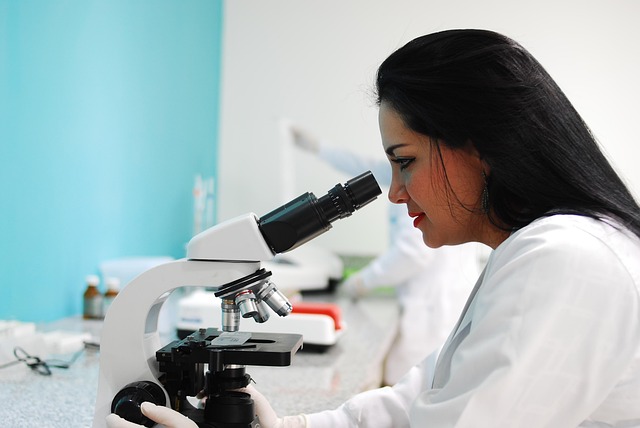In the contemporary discourse that spans biology, quantum physics, artificial intelligence, and ethics, the concept of a moral argument has emerged as a powerful connective tissue. It allows scientists to articulate the ethical implications of their discoveries while granting philosophers a concrete framework to interrogate foundational assumptions. This interplay is not a one‑way street; rather, it is a dynamic conversation in which empirical data informs moral reasoning and philosophical scrutiny sharpens scientific inquiry.
The Genesis of the Moral Argument
Historically, moral arguments were rooted in religious and metaphysical doctrines. However, the Enlightenment and the rise of natural science prompted a re‑imagining of moral philosophy that was grounded in reason and evidence. This new tradition sought to construct arguments that could withstand empirical scrutiny and adapt to technological progress. In the modern era, the moral argument has expanded to include not only human welfare but also the well‑being of non‑human entities and the integrity of natural systems.
Key Themes in Contemporary Moral Argumentation
- Beneficence and Non‑Maleficence: Balancing the benefits of scientific advancement with the potential harms to individuals, societies, and the environment.
- Justice and Equity: Ensuring fair distribution of scientific benefits and burdens across diverse populations.
- Autonomy and Informed Consent: Respecting individual agency in the face of complex, often opaque scientific interventions.
- Responsibility to Future Generations: Evaluating long‑term impacts of research on ecological and cultural continuities.
- Intrinsic Value of Natural Systems: Recognizing moral claims that extend beyond utilitarian calculations to include the rights of ecosystems and non‑human life.
Science as a Source of Moral Data
Empirical findings shape moral arguments by providing context, revealing consequences, and highlighting causal relationships. For example, epidemiological studies on the spread of antibiotic resistance underscore the moral imperative for stewardship. Neuroscience insights into decision‑making processes compel a reevaluation of culpability and the design of fair legal systems. Climate science delivers quantifiable evidence that informs moral commitments to mitigation and adaptation.
Case Study: Gene Editing and Moral Boundaries
The advent of CRISPR/Cas9 technology exemplifies the moral argument at the intersection of science and philosophy. While gene editing offers promise for eradicating genetic diseases, it also raises questions about eugenics, equity, and unforeseen ecological effects.
“We are not just editing genomes; we are editing the moral fabric of future societies.” – Speculative ethics journal, 2025
Philosophers argue that moral arguments must balance the potential for profound health benefits against the risks of exacerbating social inequalities and undermining the unpredictability of natural evolutionary processes. Scientists respond by establishing rigorous oversight protocols and engaging in public dialogue to refine ethical guidelines.
Philosophical Methodologies Enhancing Scientific Rigor
Analytical philosophy introduces tools such as logical analysis, argument mapping, and counterfactual reasoning that sharpen the clarity of scientific claims. These methodologies assist researchers in articulating assumptions, testing hypotheses, and interpreting data within a broader ethical framework.
- Logical Deconstruction – Breaking down complex phenomena into constituent premises to evaluate internal consistency.
- Thought Experiments – Simulating hypothetical scenarios to probe the ethical dimensions of scientific possibilities.
- Epistemic Evaluation – Assessing the reliability of evidence and the justification of claims in light of moral stakes.
When applied to the field of artificial intelligence, these approaches illuminate potential biases in algorithms, clarify the nature of moral responsibility in autonomous systems, and guide the development of transparent, accountable technologies.
The Role of Interdisciplinary Dialogue
Effective moral argumentation requires collaboration across disciplines. Ethicists, scientists, sociologists, and legal scholars must co‑construct narratives that respect both empirical realities and moral intuitions. This cross‑fertilization fosters robust, defensible positions that can withstand scrutiny from multiple perspectives.
Workshop Series: Bridging Empirical Data and Ethical Insight
Annual workshops that convene biologists, philosophers, and policymakers have proven instrumental in shaping public policy. Topics often include the ethics of vaccine distribution, environmental justice, and the social implications of genetic testing. The outcomes of these gatherings demonstrate that well‑structured moral arguments can lead to concrete policy reforms and increased public trust in science.
Challenges Facing Moral Argument in the Age of Big Data
The proliferation of big data presents both opportunities and perils for moral argumentation. While large datasets can uncover patterns that inform ethical deliberations, they also raise concerns about privacy, consent, and algorithmic bias. Addressing these challenges necessitates a dynamic moral framework that can adapt to rapid technological change.
“Data is no longer neutral; it carries moral weight that demands vigilant stewardship.” – Data ethics panel, 2024
Future Directions
Looking ahead, the integration of moral arguments into scientific practice will likely become more formalized. Emerging fields such as neuroethics, climate engineering, and biofabrication will rely on rigorous ethical analysis from the outset. Additionally, advances in machine learning may assist in identifying moral patterns within complex datasets, providing new tools for philosophers and scientists alike.
Ultimately, the moral argument will continue to serve as a bridge, fostering mutual understanding between science and modern philosophy. By grounding ethical debates in empirical evidence and philosophical rigor, society can navigate the uncertainties of the future with greater confidence and responsibility.




